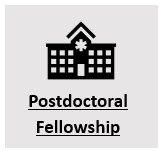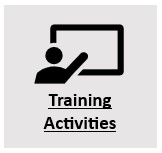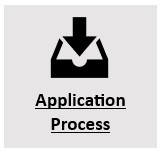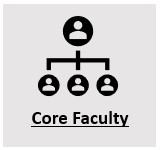Fellowship Rotations
Fellows will complete three primary rotations during the training year and will have the opportunity to be supervised by multiple licensed psychologists. Fellows are asked to provide input on rotation preferences based on training goals and interests. Training faculty incorporate fellows’ preferences with assessed training and experience needs, as well as available supervisors, to determine an individualized rotation plan for each fellow. Each rotation will be approximately 16 weeks and will emphasize exposure in a forensic practice area. Rotations offered include:
Competency to stand trial – Required rotation
Evaluations for competency to stand trial (CST) provide foundational knowledge and experience in forensic decision-making, differential diagnosis, and forensic report writing. As such, each fellow is required to complete a full competency rotation during the course of the training year. CST rotations are offered in a variety of settings including inpatient at Eastern State Hospital, Western State Hospital, and Regional Treatment Centers; jail-based evaluations; and evaluations with defendants released on their personal recognizance conducted in attorney offices or other community settings.
Fellows typically complete one to two CST evaluations per week, depending upon prior training and experience, although training emphasizes producing high quality work rather than meeting a productivity requirement. Fellows may complete a second CST rotation, for example, if interested in a second evaluation setting or working with special populations. This includes the option of working with a supervisor who is a developmental disabilities professional, required under Washington law to complete competency evaluations for defendants suspected of having a developmental disability.
Forensic risk assessment
Fellows may complete a rotation focused on forensic risk assessments for individuals adjudicated not guilty by reason of insanity and committed to Eastern/Western State Hospital for treatment. Referrals include initial evaluations to assist with treatment planning for newly admitted patients, periodic re-evaluation on an annual basis, or evaluation for consideration of increased privilege levels within the hospital or community. This rotation includes training, as necessary, on relevant risk assessment instruments such as the HCR-20v3, VRAG-R, PCL-R, and SAPROF.
Mental state at the time of the offense (MSO)
Fellows may complete an MSO rotation, which includes evaluations of sanity/criminal responsibility, diminished capacity, and a combination of both. Evaluations may occur in inpatient hospital settings, jails, attorney offices, and other locations. On this rotation, fellows typically work with a variety of supervisors to get a broad range of experiences in MSO case conceptualizations.
Private practice evaluations
Fellows may complete a rotation working with a supervisor in a private practice setting to complete evaluations relevant to criminal and non-criminal forensic referral questions. Types of evaluations may include personal injury, sexual harassment, wrongful death, parental capacity, and federal sentencing mitigation. Supervisors may be DSHS employees or be employed fully in private practice.
On this rotation, fellows may observe deposition and trial testimony, consult with attorneys, learn the administration and interpretation of tools used to assess PTSD, cognitive functioning, and other diagnostic measures. Fellows learn the evaluation of damages and causation in personal injury cases, or how to assess and explain mitigating circumstances that contributed to the defendant’s decision making. Opportunities vary by location and supervisor availability.





